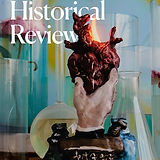
News, Reviews and Print Media
March 1, 2022 at 12:00:00 PM
American Historical Review
Feature Review by James C Scott
This brings us to James Suzman’s important contribution to deep history, Work: A Deep History, from the Stone Age to the Age of Robots. As an anthropologist and archaeologist, turned corporate executive, turned public intellectual, Suzman’s area of greatest expertise lies in his examination of Ju/’hoansi [!Kung San], the much-studied hunters and foragers of the Kalahari, and the archaeology of tool evolution.
June 28, 2021 at 11:00:00 PM
New York Times
Ezra Klein Interview and Podcast
James Suzman is an anthropologist who has spent the last 30 years living with and studying the Ju/’hoansi people of southern Africa, one of the world’s enduring hunter-gatherer societies. And that project has given him a unique lens on our modern obsession with work.
February 1, 2021 at 12:00:00 AM
GQ Magazine
Interview
"During a pandemic, when we’ve all been forced to reconsider the givens of our work-crazed culture, and to reckon with the economic inequality and environmental degradation it has wrought, Suzman isn’t just showing what life was like before. He’s also putting forth an idea of what it could still be."
January 1, 2021 at 12:00:00 AM
Harvard Business Review: Ideacast
Interview/Podcast
James Suzman, an anthropologist and former executive, says one way to better understand the future of work is to learn from the history of it. He has studied an ancient hunter-gatherer society in Namibia and says our modern notions of work, economy, and productivity are perhaps too limiting.
January 11, 2021 at 12:00:00 AM
New Yorker
Review Essay by Jill Lepore
Suzman’s answer is at once anthropological and historical, and it has to do with agriculture. “For 95 per cent of our species’ history,” Suzman writes, “work did not occupy anything like the hallowed place in people’s lives that it does now.”
January 1, 2021 at 12:00:00 AM
The Atlantic
Review
But what Suzman’s foray into humanity’s past reveals is that leisure has never been the ready default mode we may imagine, even in the chillest of cultures. The psychological cost of civilization, the scourge of the Sunday scaries, and the lesson of the Ju/’hoansi converge in an insight worth taking to heart: Safeguarding leisure is work.
October 6, 2020 at 11:00:00 PM
Financial Times
Review
Suzman explores a vast terrain: termites creating “intergenerational social communities”, social anthropology, the arrival of agriculture (in which prosperity was “fleeting, and scarcity evolved from an occasional inconvenience that foragers stoically endured . . . to a near perennial problem”), the Industrial Revolution, and the rise and demise of the company man.
September 2, 2020 at 11:00:00 PM
The Economist
Review
The study working life tends to be dominated by economists, management consultants and business-school professors. So it is nice to get a new perspective. James Suzman, an anthropologist, provides that fresh appraisal in an ambitious new book called “Work: A History of How We Spend Our Time”.




















